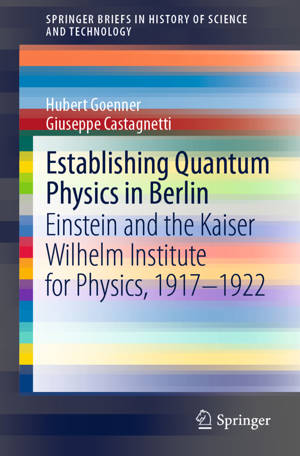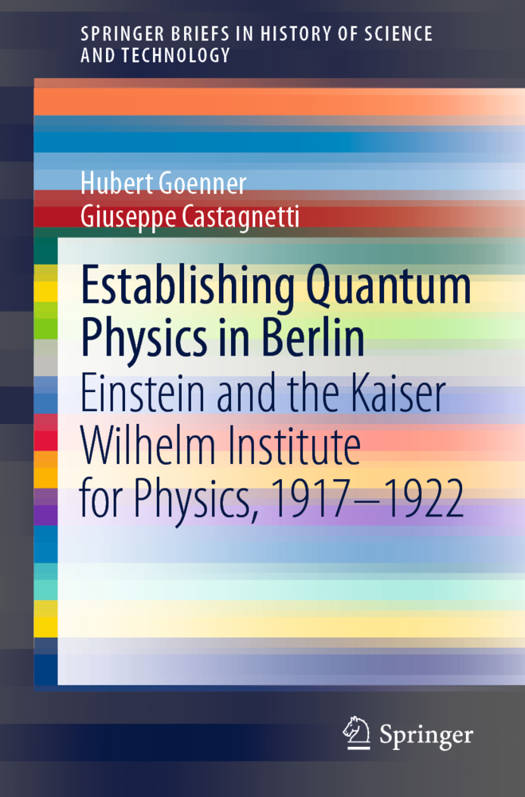
- Afhalen na 1 uur in een winkel met voorraad
- Gratis thuislevering in België vanaf € 30
- Ruim aanbod met 7 miljoen producten
- Afhalen na 1 uur in een winkel met voorraad
- Gratis thuislevering in België vanaf € 30
- Ruim aanbod met 7 miljoen producten
Zoeken
Omschrijving
This book explores Albert Einstein's move to Berlin and the establishment of the Kaiser Wilhelm Institute for Physics under his directorship. Einstein's call to Berlin was supported by a group of prominent physicists, including Fritz Haber, Walter Nernst, Max Planck, Heinrich Rubens, Emil Warburg, and the young astronomer Erwin Freundlich, in the expectation that Einstein and the institute would take the lead in advancing quantum physics in its early phase. Examining both the abortive attempt and the successful opening of the institute in 1917, it also discusses in detail the institute's activities up to 1922, when Einstein relinquished the directorship, as well as his reasons for stepping down. The final chapter evaluates the institute's activities and its role in the advancement of physics. In the end, the institute only partially fulfilled the expectations of its promoters because of the waning interest in quantum physics on the part of its director and board, and also because of Einstein's refusal to exert scientific leadership. The book is part of a series of publications in the SpringerBriefs series on the early network of quantum physics. The other books in the four-volume collection address the beginnings of quantum physics research at Göttingen, Copenhagen, and Munich. These works emerged from an expansive study on the quantum revolution as a major transformation of physical knowledge undertaken by the Max Planck Institute for the History of Science and the Fritz Haber Institute (2006-2012).For more on this project, see the dedicated Feature Story, The Networks of Early Quantum Theory, at the Max Planck Institute for the History of Science, https: //www.mpiwg-berlin.mpg.de/feature-story/networks-early-quantum-theory
Specificaties
Betrokkenen
- Auteur(s):
- Uitgeverij:
Inhoud
- Aantal bladzijden:
- 127
- Taal:
- Engels
- Reeks:
Eigenschappen
- Productcode (EAN):
- 9783030631215
- Verschijningsdatum:
- 28/01/2021
- Uitvoering:
- Paperback
- Formaat:
- Trade paperback (VS)
- Afmetingen:
- 156 mm x 234 mm
- Gewicht:
- 199 g

Alleen bij Standaard Boekhandel
+ 105 punten op je klantenkaart van Standaard Boekhandel
Beoordelingen
We publiceren alleen reviews die voldoen aan de voorwaarden voor reviews. Bekijk onze voorwaarden voor reviews.











